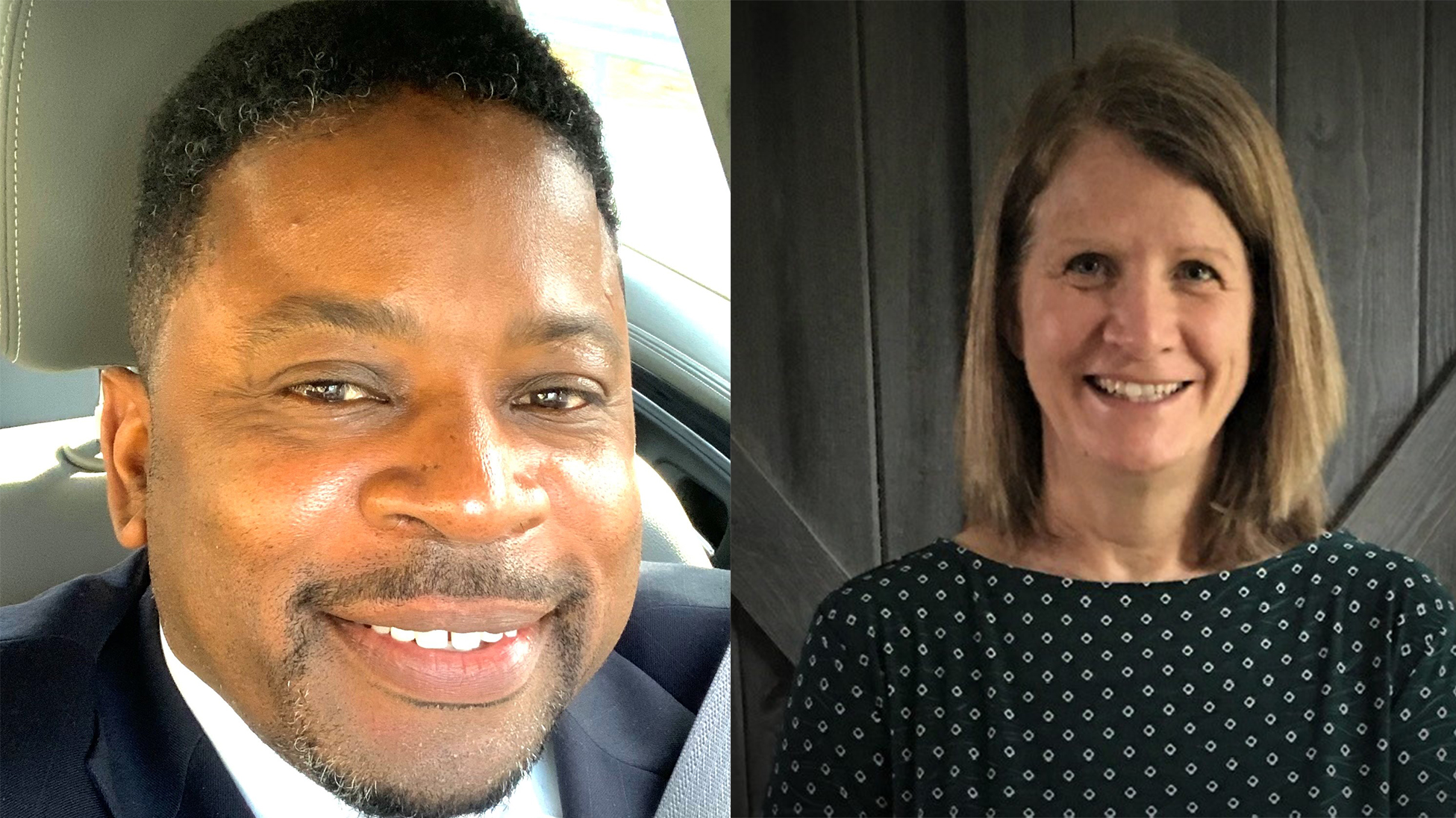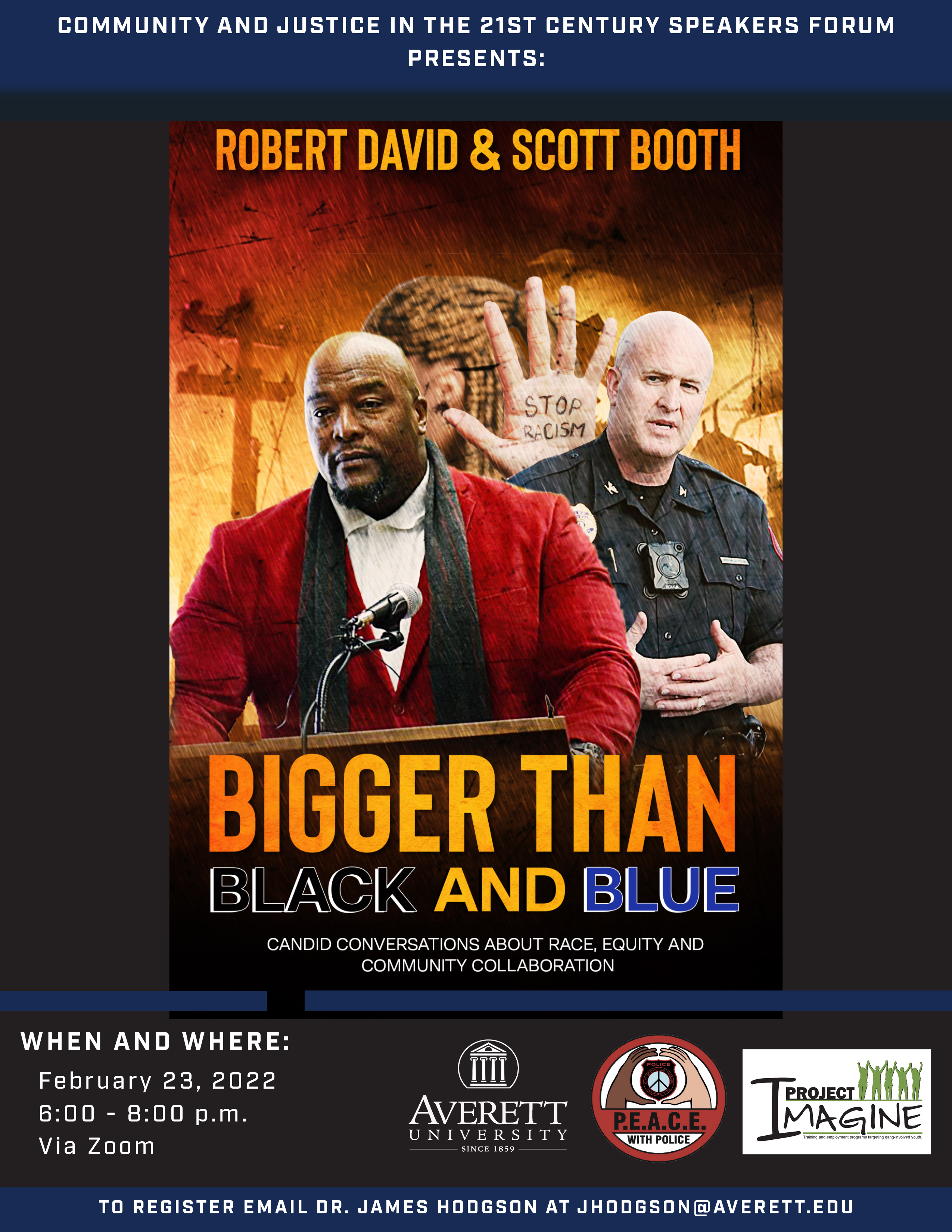Speakers in the first workshop covered trauma, stress and work conditions as law enforcement officers.
Speaking candidly about what affects each day, panelists in Averett University’s Community and Justice Speakers Forum addressed workforce duties, pressure from fellow officers and trauma and common stigmas for law enforcement.
Averett Professor of Criminal Justice and Sociology Dr. James Hodgson virtually hosted the first in a series of talks Wednesday, Jan. 26, with the first to cover trauma and what law enforcement officers experience on the job. The series, Community and Justice in the 21st Century Speakers Forum, will feature various speakers and topics throughout the semester.
 Keynote speakers for the first presentation were Professor of Criminal Justice at Averett University and Chesterfield County, Va. Police Department Lieutenant Dr. Russell Granderson, and Averett Online Psychology Program Director and Associate Professor of Psychology Dr. Jennifer Wagstaff.
Keynote speakers for the first presentation were Professor of Criminal Justice at Averett University and Chesterfield County, Va. Police Department Lieutenant Dr. Russell Granderson, and Averett Online Psychology Program Director and Associate Professor of Psychology Dr. Jennifer Wagstaff.
Time allowed at the end for those in attendance to participate in a question and answer session, and for further discussion.
“Those in law enforcement are commonly men, and so there’s a tough guy stigma that still holds true today. When I joined the force in 1997, it was much worse than it is today; however it is a stigma that is ever present,” Granderson said. He noted the job is still high risk for low wages, and oftentimes pulls officers away from their families – sometimes for extended periods of time.
According to Granderson, occupational stress generally occurs when recruits enter the academy as they train for the job ahead. As they become officers, they learn how to deal with the stress.
From the statistics provided, Granderson noted that around one in three, or 36% of officers, will have some form of post-traumatic stress disorder (PTSD) during their career.
“Officers will find opportunities to laugh, for example, to deal with stress,” Granderson said. “PTSD is an under-researched diagnosis, especially in the police field. One person can see the same thing as someone else, and while it may resolve for one of them, it may not for the other.”
One of the examples Granderson pointed to was processing crime scene photos. While an individual may have never been present at the scene of a crime, the photographs they have to process can have long-term effects and cause PTSD.
While PTSD can be detrimental to one’s health, a key element it dealing with stress is self-care.
“Just five to 10 minutes per day to nourish yourself makes a big difference. It doesn’t have to be an hour a day,” Wagstaff said. “There’s a lot that goes into physical care we don’t think about. Showering and then putting on nice clothes does make us feel better.”
While eating sugary foods may seem like a good idea in the moment, both Granderson and Wagstaff said it can have long term effects.
According to the discussion held, sugary foods such as candy or dessert can hurt an individual especially in a high stress situation because it can cause stress as the body processes it.
Breathing is another tool for dealing with stress, according to Wagstaff.
“When you feel yourself ratcheting up, take a deep breath. If I push pause to calm, I am going to respond differently,” Wagstaff said.
According to the panelists, part of the issue with mental health is convincing individuals that it is just as necessary as seeing a doctor for a broken bone.
“Why aren’t people seeking mental health? There’s a stigma, that I am weak. How can we change that to talk more about mental health?” Wagstaff said.
One of the key points from the presentation was understanding it is okay to ask someone if they are thinking of harming themselves.
After a critical incident, Granderson said he made it a point to pull those together who responded as a group and to talk through what was seen and what occurred.
“I guarantee you there were people there who didn’t respond that wanted to, but chose not to. There’s nothing like getting with someone one-on-one to deal with something, because you could just tell they indirectly wanted to say something,” Granderson said.
Community and Justice in the 21st Century Speakers Forum Series continues in a virtual setting Wednesday, Feb. 23, from 6-8 p.m. Students, faculty and staff can register for free to participate in this virtual event by emailing [email protected].
 This month, the topic is Bigger than Black and Blue: Candid Conversations about Race, Equity and Community Collaboration. The keynote presenters will be Danville Police Chief Scott Booth and the City of Danville’s Youth and Gang Violence Prevention Coordinator Robert T. David, Sr.
This month, the topic is Bigger than Black and Blue: Candid Conversations about Race, Equity and Community Collaboration. The keynote presenters will be Danville Police Chief Scott Booth and the City of Danville’s Youth and Gang Violence Prevention Coordinator Robert T. David, Sr.
This topic has significant impact on everyone, and will provide many tangible strategies operationalized by Chief Booth and David to keep communities safe and healthy.
